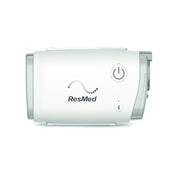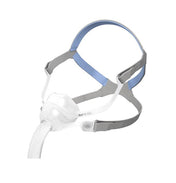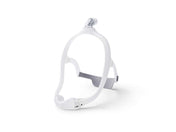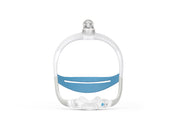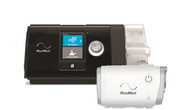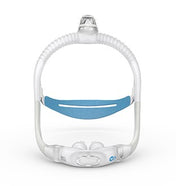HOW DOES SLEEP CHANGE OVER THE LIFESPAN?
“She sleeps like a baby”; “my teenager is lazy, he sleeps till noon”; “now that I’m 65 I’m up 2 or 3 times a night and can’t fall back asleep!”. These are all common commentary around sleep, and each holds some truth to it. But what happens to our sleep, and how do our sleep needs change, over our life?
BABIES
Prior to birth (in utero), and in our early life, we spend most of our time in REM (Rapid Eye Movement) sleep. In fact, over the first two years of our lives, we spend over 50% of our sleep time in REM (vs. ~20% for adults). As anyone with a newborn knows, depriving a baby of just a few hours of sleep is not a good recipe for a happy baby! In fact, babies spend most of their day (ideally 14-17 hours) sleeping, and this amount of rest seems to be critical for brain and bodily growth, learning, and emotional regulation.
ADOLESCENTS
It’s our teenagers today where sleep (or lack thereof) is perhaps of most concern. Teenagers require more sleep than adults (8-10 hours per night, according to the CDC); however, due to several factors, approximately 95% of North American males and females in the 12th grade DO NOT get at least 8 hours of sleep. For teens, there are several factors at play:
- Circadian Rhythm shifts. After puberty, adolescents experience a biological shift in their body’s internal clock of approximately 2 hours. This means if they’d been going to bed naturally at 9pm, they’ll shift to 11pm. It also means waking up 2 hours later the next morning.
- Early School start times. Primarily due to the biological shift in Circadian Rhythm, the American Academy of Pediatrics has recommended that Middle and High Schools start at 8:30am or later, to give students the opportunity to get the proper amount of sleep. However, 93% of US High Schools and 83% of US Middle Schools start BEFORE 8:30am.
- Social Media. Our teenagers are connected like never before, and this comes with a huge cost for their sleep. Approximately 92% of US teens have a smartphone, and 33% of them bring their phones into their bedroom and use them before sleep. These devices stimulate the mind and emit harsh blue light, making sleep onset more difficult. Furthermore, even once they do put the phone down, 28% of teens leave their phones on while sleeping, only to awaken to texts, calls, or email alerts throughout the night.
- Educational Demands. Teenagers are under a lot of pressure, especially as they approach grades 11 and 12 and post-secondary applications are looming. Many can feel overwhelmed by school and extracurricular activities, and cut out sleep as a way to fit it all in. Ironically, reducing sleep in favour of more studying has the opposite effect on learning. According to sleep research Dr. Matt Walker, if you haven’t slept, your ability to learn new things drops by up to 40%. For learning and retention, a student is far better putting away the books and getting a good night’s sleep than pulling an all-nighter.
What can you do to help your teen’s sleep habits? Model good sleep habits yourself! Set a regular bed and wake time; dim the lighting in your house after 8pm; remove electronics from your room; and avoid cell phone or tablet use after a certain time (ideally one hour before bedtime).
Older Adults
Most people experience a decline in the quantity and quality of their sleep, starting in their forties. There is a myth that older adults need less sleep, but that does not seem to be true. What is true is that older adults report lower quality and quantity of sleep, due a number of factors.
- Reduction in Deep Sleep. There seems to be a palpable reduction in Deep Non-REM sleep as we age, making sleep feel less restorative.
- Increased fragmentation of sleep. Older adults wake up more frequently during the night, which fragments sleep and reduces sleep efficiency. Sleep Efficiency is defined as the % of time asleep while lying in bed. As healthy teenagers, we see ~95% sleep efficiency, while sleep doctors consider 90% sleep efficiency a healthy level for adults 40+
- Circadian Rhythm changes. In contrast to adolescents (who experience later Circadian sleep cues), the internal sleep clock as we age seems to advance earlier and earlier, leading to earlier bedtimes
Recommended Sleep per 24 hour period (per CDC Guidelines)
| Newborn | 0 to 3 months | 14 - 17 hours |
| Infant | 4 to 12 months | 12 - 16 hours (including naps) |
| Toddler | 1 to 2 years | 11 - 14 hours (including naps) |
| Preschool | 3 to 5 years | 10 - 13 hours (including naps) |
| School Age | 6 to 12 years | 9 - 12 hours |
| Teen | 13 to 18 years | 8 - 10 hours |
| Adult | 18 to 60 years | 7 or more hours |
| 61 to 64 years | 7 - 9 hours | |
| 65+ | 7 - 8 hours |
If you’ve noticed your sleep as regressed with age, you are not alone. Also, there ARE things you can do to improve it! Proper sleep hygiene, which we’ll focus on in our next article in our Sleep Week series, is critical for all ages but becomes even more important as we age and sleep becomes more elusive.

